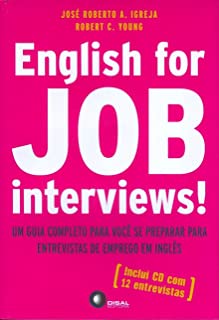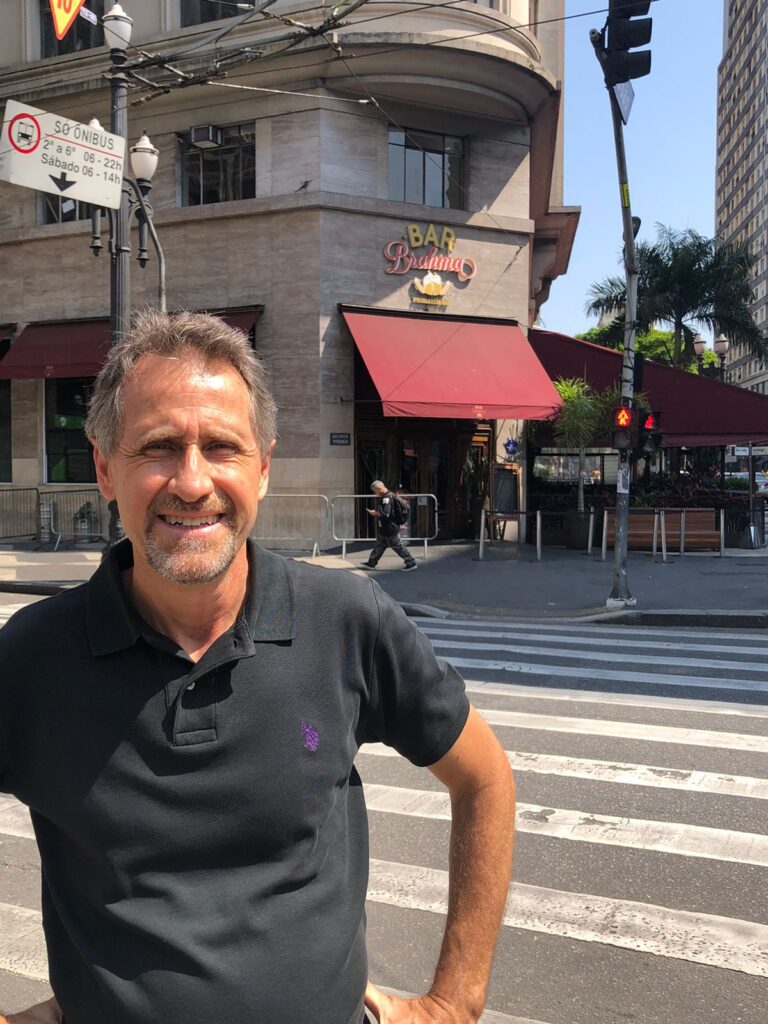by José Roberto A. Igreja
As qualified and resourceful English teachers it is our job to help our students face the challenges they might have with the language. Many of these challenges have to do with ESP – English for Specific Purposes, and one of them may just as well be preparing for a job interview in English, an increasingly common demand in multinational companies in Brazil these days.
I know the feeling, I have been there before. Your initial reaction may be to ask yourself the question: Job interviews? What the heck am I supposed to teach? Never mind, it is only natural to feel a bit scared when leaving your comfort zone, and by comfort zone, I mean the flawless textbook program with detailed guidelines we all feel comfortable to fall back on. But once you start to mature the idea of what preparing someone language-wise for a job interview in English really involves, you will hopefully soon realize it is really no big deal and much more a matter of research, planning and preparation.
While the focus of this article is on the specific language needed by an applicant during a job interview (and this should also be the focus of a teacher aiming to prepare a student for such an endeavor) it is nonetheless relevant to comment on some commonplace aspects that someone applying for a job should be aware of, and which are true for any job interview, regardless of the language. So, in order to start shedding some light on the subject and the probable language derived from it, I have put together a list of what I believe to be the “top six tips”:
1. Research the company you are interviewing for.
The more you know about the company you are interviewing for the easier it will be for you to interact during the interview. It will also show the interviewer you are really interested in working there.
2. Understand the needs for the position you are applying for.
Anticipating what the company will expect from someone in that position will help you explain more easily how you could contribute if you were hired.
3. Know your skills and talents/abilities.
You can be certain to be asked about your strengths, so make sure to point them out clearly during the interview.
4. Do not speak badly about your previous employers.
Saying bad things about a previous employer would make a bad impression. The interviewer might get the wrong idea and think you are a troublemaker. As a consequence he/she might not feel comfortable hiring someone with that profile.
5. Practice a mock interview.
Simulations are crucial. You will feel a lot more comfortable during the interview after a dry-run since you can plan your answers carefully and anticipate what might come up.
6. Always have relevant questions for the interviewer about the position.
It shows you are really interested in the job, but remember you are there to primarily answer questions, so be sure to wait for the appropriate moment to ask.
WHAT ABOUT THE SYLLABUS?
What should the syllabus for preparing someone for a job interview in English include? A straightforward answer to this question would be “any vocabulary to do with the work environment.” While that answer is somewhat vague, it is also true. We should also bear in mind, however, that the words and expressions to be mastered by the prospective interviewee might vary depending on the position he is interviewing for. A list of essential words and expressions likely to be useful for someone preparing for a job interview in English should in my opinion include:
Bonus
Rapport
Employment agency
Classified ads
Retirement / To retire
Customer service
Benchmark
Fringe benefits / Perks
Applicant / To apply for
Application form
Résumé
Multitasker
Position
Workload
Business card
Co-worker / Colleague
Commitment
Competition / Competitor
To hire / To employ
To fire / To dismiss
Staff
To give notice
To delegate
Competitive edge
Day off
Employee / Employer
Internship / Intern
Work experience
Expertise
Head office/Headquarters
Branch office
To supply / Supplier
Freelance
To merge / Merger
Skill / Interpersonal skill
Headhunter
Track record
Working hours
Leave of absence
Work overtime
Maternity leave
Sick leave
Core business
To commute
Labor
Skilled labor
Unskilled labor
Market share
Full-time job
Part-time job
Networking / To network
Organization chart
Goal-oriented
Resignation / To resign
Policy
Strengths and weaknesses
Proactive
Outplacement
Recruitment / To recruit
Downsizing /To downsize
Turnover
Absenteeism rate
Union
Outsourcing
To outsource
Shift
Opening
Workaholic
Another key language component derives from the various questions asked at job interviews. Some of these questions can be regarded as vital since they are almost always present in most interviews. I have narrowed down the vital job interview questions to just three below:
1- Tell me a little about yourself.
2- Why do you want to work for this organization?
3- How do you think you can contribute to our organization?
Is that it? Only three main questions? You must be thinking to yourself, “there must be more to it, right?” Of course there is. Now remember that these very same questions can be asked in lots of different ways, but regardless of the words and structure used they will boil down to the same meaning. It is important to point that out to students who might at first feel intimidated by the linguistic variety. Let us look at some possible variations for the 3 vital job interview questions above:
1- Tell me a little about yourself.
1A- How would you describe yourself?
1B- What kind of adjectives would you use to describe yourself?
1C- How would you describe your personality?
1D- How would your co-workers describe you?
1E- What are your strengths and weaknesses?
2- Why do you want to work for this organization?
2A- Why do you want this job?
2B- Why would you like to work with us?
2C- Why did you decide to seek a position in this company?
2D- What attracted you to this company?
2E- What interests you about our product(s) or service(s)?
3- How do you think you can contribute to our organization?
3A- In what ways do you think you can make a contribution to our organization?
3B- What makes you qualified for this position?
3C- What unique skills or knowledge can you contribute to our company?
3D- Can you tell me a little about your experience in this area?
3E- What kind of background do you have?
3F- Why should we hire you?
3G- Why should we select you over the other candidates?
3H- What makes you believe you would be ideal for this position?
PRACTICE MAKES PERFECT
The more you do something the more comfortable you feel doing it. That is a well-know fact and the reason why practicing mock interviews plays such a big role. In order to really excel at a job interview in English there is nothing like getting prepared by reviewing and consolidating the vocabulary that is likely to come up and by, above all, doing simulations. As a teacher you can play the role of the interviewer and guide your “applicant” through the tricky questions along the way. Make no mistake: simulations and mock interviews pay off. After all, remember the good old saying: Practice makes perfect!
Well, this is basically what I wanted to convey in this article, and oh yes, just one more thing before wrapping up. You will also find that leaving your daily orthodox teaching routine at times and adventuring into new land such as preparing someone for a job interview can be fun and rewarding, not to mention the great feeling of “mission accomplished” that you will get from knowing you have somehow contributed to someone´s advance in their professional (and personal!) lives. Isn´t that what teaching is ultimately for?
Article originally published in New Routes magazine # 37
Ref. English for Job Interviews
José Roberto A. Igreja holds a B.A. in English from PUC (Pontifícia Universidade Católica) in São Paulo, Brazil. He also has certificates of proficiency in English from Michigan University and BYU (Brigham Young University). He blogs at www.faletudoemingles.com.br and is an active LinkedIn member. He is the author and co-author of several ELT books, including:
LET´S TALK ABOUT IT! – The Ultimate ELT Conversation Book (Available on UICLAP and Amazon)
600 Phrasal Verbs (with Jonathan T. Hogan)
Fluent Business English (with Robert C. Young)
English for Job Interviews (with Robert C. Young)
American Idioms! (with Joe Bailey Noble III)
Fale Tudo em Inglês – LIVRO DE ATIVIDADES
Fale Tudo em Inglês em VIAGENS!
Fale Tudo em Inglês nos NEGÓCIOS!
Fale Tudo em Inglês nos NEGÓCIOS – LIVRO DE ATIVIDADES
Inglês de Rua – American Slang (with Robert C. Young) – Now also available as an ebook!
Como se diz em inglês? – Now also available as an ebook!
Guia Prático para a comunicação em Inglês
Fale Inglês como um Americano (with Robert C. Young)



